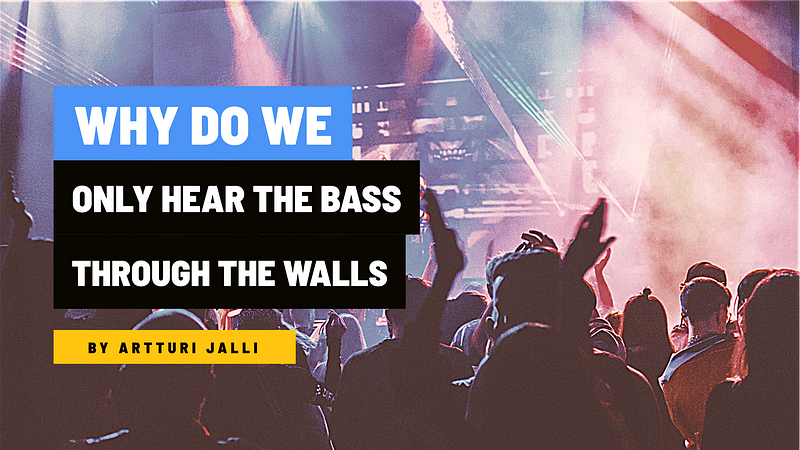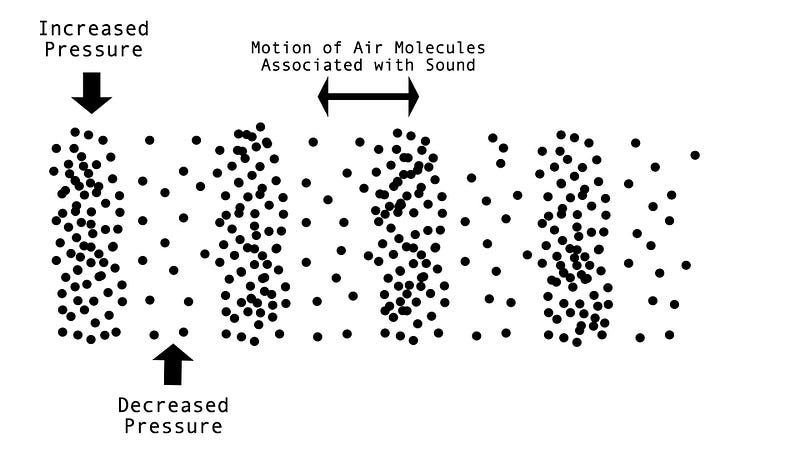Understanding Why We Only Hear Bass Through Walls
Written on
Chapter 1: The Sensitivity of Human Hearing
Have you ever wondered why we seem to hear bass more clearly through walls? The answer lies in our sensitivity to different sound frequencies.

A Quick Overview
Humans are not particularly sensitive to bass sounds. In fact, our ears are most attuned to frequencies ranging from 2000 to 5000 Hz, which fall into the high-frequency category. The reason we perceive bass so well is that low-frequency waves are able to move through walls more effectively than their high-frequency counterparts. This phenomenon occurs because higher frequencies tend to lose energy at a faster rate than lower frequencies.
Let’s delve deeper to understand the mechanics behind this process.
Section 1.1: Energy Loss in Sound Waves
When examining sound waves, it’s essential to understand how they dissipate energy. Sound waves are classified as longitudinal waves. To better grasp this, we can also consider transverse waves.
High-frequency sound waves oscillate more frequently than low-frequency waves. This increased activity translates to a more rapid depletion of energy, akin to performing sit-ups: the faster you go, the quicker you tire.
This comparison illustrates how sound waves lose energy as they travel through materials. Over distance, low-frequency waves retain more energy since they oscillate less frequently than their high-frequency counterparts.
Subsection 1.1.1: Longitudinal Waves in Motion
Longitudinal waves create alternating zones of high and low pressure:

In these waves, tighter spacing occurs at higher frequencies, leading to quicker energy loss. As the high-pressure segment of the sound wave compresses the medium, heat is generated due to the material resisting deformation, resulting in energy loss. Consequently, the higher the frequency, the more rapidly this energy depletion occurs.
Section 1.2: Answering the Initial Question
Given the information above, we can finally address the question: Why do we predominantly hear bass through walls?
The answer lies in the fact that low-frequency bass sounds retain their energy longer than high-frequency waves.
Chapter 2: Conclusion
In summary, we are able to hear bass sounds through walls more clearly because high-frequency sound waves dissipate their energy much faster than low-frequency waves. As sound waves travel, they create fluctuations in pressure within the material, which drains energy.
In high-frequency waves, this pressure variation occurs more rapidly, resulting in quicker energy expenditure and a faster loss of sound.
Thank you for reading! I hope this explanation has enhanced your understanding of sound dynamics.
Become a Genius
Did you enjoy this article? Join Medium.com to access expert insights and top stories.
Disclaimer: Joining through the provided link allows me to earn a small commission at no additional cost to you.
Insightful Stories
Northern Lights Can Make a Sound!
Did you know that the northern lights sometimes produce a crackling sound audible to humans?
Lightning Strikes Aircraft More Often Than You Thought
On average, every passenger plane encounters lightning at least once a year!
References
The first video discusses how bass can travel through walls, explaining the science behind this phenomenon.
The second video explores the reasons sound travels through walls, providing additional insights into the topic.